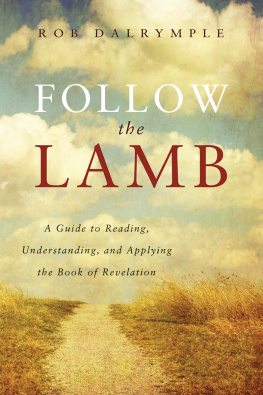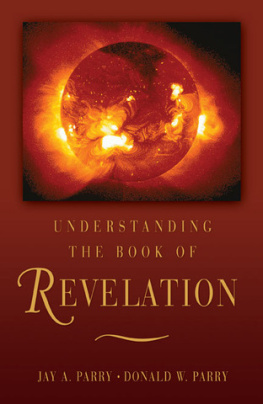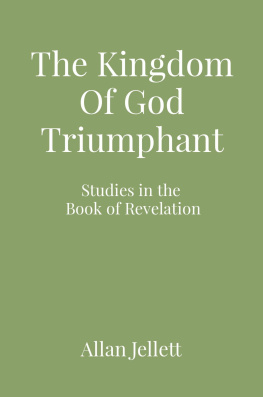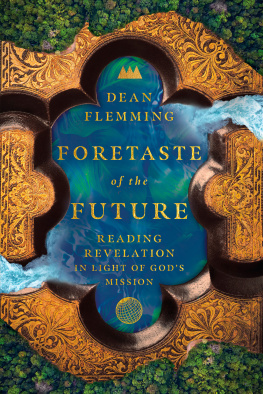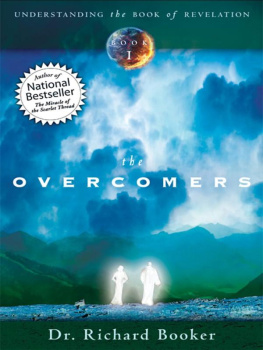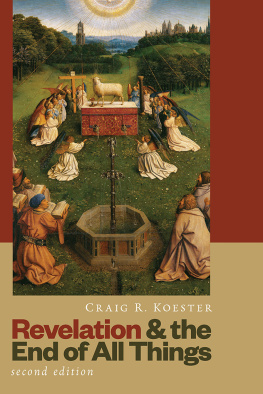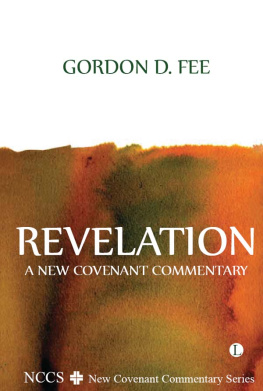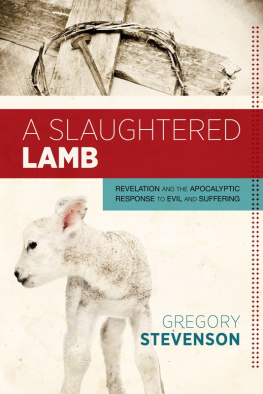ROB DALRYMPLE
FOLLOW
the
LAMB
A Guide to Reading, Understanding, and Applying the Book of Revelation

Follow the Lamb: A Guide to Reading, Understanding, and Applying the Book of Revelation
2018 by Rob Dalrymple
Lexham Press, 1313 Commercial St., Bellingham, WA 98225
LexhamPress.com
First edition by Weaver Book Company.
All rights reserved. You may use brief quotations from this resource in presentations, articles, and books. For all other uses, please write Lexham Press for permission. Email us at .
Scriptural references in parentheses that are from the book of Revelation include only the chapter and verse(s). When Scriptural citations in parentheses reference books other than Revelation, the citation includes book, chapter, and verse(s).
Scripture quotations are from the New American Standard Bible. Copyright 1960, 1962, 1963, 1968, 1971, 1972, 1973, 1975, 1977, 1995 by The Lockman Foundation. Used by permission. www.Lockman.org.
All Scripture quotations, unless otherwise indicated, are from the New American Standard Bible. Copyright 1960, 1962, 1963, 1968, 1971, 1972, 1973, 1975, 1977, 1995 by The Lockman Foundation. Used by permission. www.Lockman.org.
Print ISBN 9781683592044
Digital ISBN 9781683592051
Cover: Frank Gutbrod
I dedicate this book to my children:
Justin, Jordan, Jared, and McKenzie.
I pray that I have been faithful in following the Lamb,
and in doing so have modeled what it means to
imitate Jesus for you. I am very proud of you.
May you continue to follow the Lamb
wherever He leads!
Contents
R evelation is arguably one of the greatest pieces of literature in the history of the world and one of the great books within the Bible. Unfortunately, for many the book of Revelation remains a mystery, which few dare to explore. Ironically, the book opens with a blessing for its reader, hearers, and keepers (1:3). This raises the question: How can one be blessed by reading a book that no one seems to understand?
Early in my academic years this question troubled me. As a young man, I had concluded that Revelation was a mystery that would only be solved after everything was over. And I gave up trying to understand it.
Now you must understand that in my younger days I was fascinated with the end times and all of the hype that went along with it. I grew up in the 70s (I was born in 666no, really, June of 1966 ). At this time, the evangelical fascination was high regarding world events and their apparent proof that the fulfillment of everything was right at the door. I read dozens of books and endeavored to discern how everything was being fulfilled right before our eyes. I even spent hours in a local library one day to determine if there really was an increase in the number and frequency of earthquakes in the last centuryafter all, I was convinced that this would have been a clear sign of the imminent return of Christ!
But problems began to surface for me along two fronts. First, I began to observe that there were tremendous disagreements among the popular writers regarding both the meaning of the book of Revelation in particular and the end times in general. I felt an uneasiness in my heart as I grappled with these things. Who should I trust? The second problem was that none of them seemed to have it correct. Nothing they said would happen came true. They seemed to do well when it came to the past. But when it came to the present and the immediate future, time proved them wrong.
My disillusionment grew throughout the 80s . Many of the prophecies that I had been confident were being fulfilled among us never seemed to actually come to pass. Then in 1989 when the Berlin Wall fell and the Iron Curtain was beginning to be dismantled, I became totally disillusioned. Things were clearly not unfolding as I had been told by the so-called prophecy experts.
The problem was more than the fact that prophecies were not being fulfilled as I had come to expect. The problem was that things were moving in the opposite direction from what I had come to believe. Armageddon was supposed to happen in the 1980s . Yet it became more and more evident that the Soviets were not about to invade Israel, nor the Middle East.
It was in this state of disillusionment that I concluded that the book of Revelation was a mystery not to be understood by human beings. Though I continued to study the Scriptures and to refine my understanding of eschatology and the New Testament (NT), I decided that the book of Revelation was off-limits. I envisioned that there should be a blank page in my Bible before the book of Revelation (like what one finds between the end of Malachi, the last book of the Old Testament [OT], and the beginning of Matthew, the first book of the NT ). This blank page needed to read: Do Not Trespass.
Mind you, my convictions about not reading or being able to understand the book of Revelation did not sit comfortably with me. I knew the promise that all Scripture, which included the book of Revelation, was profitable for teaching, for reproof, for correction, for training in righteousness (2 Tim. 3:16).Revelation opens with a promise of blessing for its readers, hearers, and keepers (1:3). Somehow, this book was meant to be read, studied, and used by the church. Yet it made no sense. How could anyone do what it says when no one knows what it means?
The Lord, of course, has a way of messing with us. He knew I had a passion for Scripture. I soon found myself pursuing graduate and post graduate studies in the NT . I decided on my own to renew my studies in the book of Revelation and I soon ventured into several standard evangelical commentaries. It was not long before I realized that there was a significant amount of agreement among a wide range of scholars (including conservative evangelicals) regarding the book of Revelation. And I quickly began to fall in love with the message of the book of Revelation.
I found that the message of the book of Revelation was first and foremost about Jesus. This was not hard to see, after all, the first verse begins with the revelation of Jesus Christ (1:1). This alone should be enough for every Christian to be consumed with studying. But as I soon found out, there was more. And this more relates to every follower of Christ.
The goal of this book is to introduce the reader to the fundamental principles for reading, understanding, and applying the book of Revelation today. So if you have ever been disillusioned with the book of Revelation, or just wanted to learn what it means, I invite you to explore the wonders and marvels of this great piece of literature. Come on! Lets learn to follow the Lamb wherever He goes (14:4).
R OB D ALRYMPLE
March 2017
I would like to thank Ian Spencer for his kind and helpful corrections to my attempts at putting something cogent together. Ian is a great thinker, communicator, and friend. Your help has made this book readable for everyone else and for that I (and they) am greatful (I thought I would have one typo that you missed!).
I would like to thank my students over the years who have allowed me to teach endlessly about the book of Revelation. You have allowed me to pursue my passion for this book and to justify it by teaching you. I only pray that it has been as profitable for you as it has been for me.
M y son texted me the other day: Dad, what view of Revelation do you support? He was asking because it was the last day of his New Testament Survey course and his professor was providing an overview of the book of Revelation. Herein lies one of the problems for understanding the book of Revelation in the twenty-first-century church: Many of our pastors and leaders are simply not given adequate training on how to interpret the book of Revelation.

